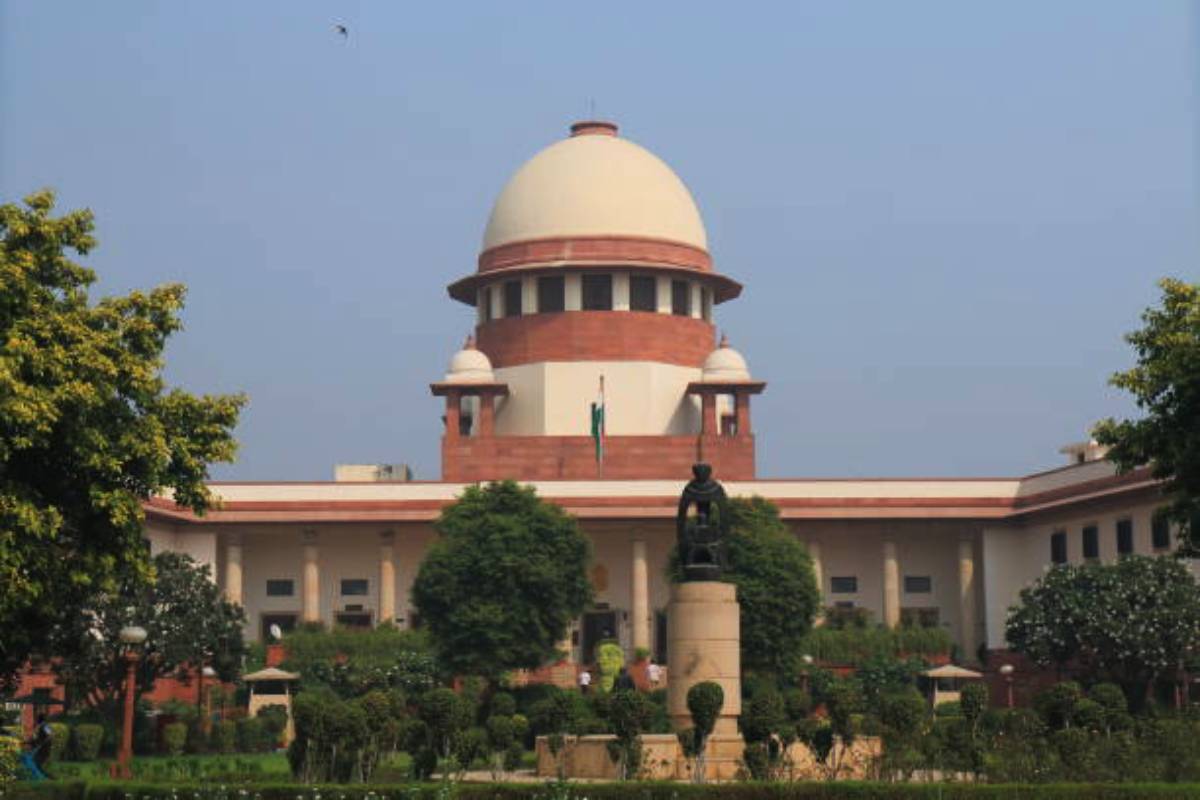Toxic air: SC refuses to relax GRAP-IV measures,
The apex court asked the CAQM to take a call on lifting online schooling.
The apex court will take up the former Andhra Pradesh chief minister’s petition for interim bail for hearing on Friday, October 20.

Supreme Court of India
With no interim bail to former Andhra Pradesh Chief Minister Nara Chandrababu Naidu in fibernet case, for now, the Supreme Court on Tuesday reserved its order on his plea seeking the quashing of FIR in alleged Rs 371 crore Skill Development project scam on the grounds that it was registered without prior sanction of the state governor under Section 17A of the Prevention of Corruption Act.
Naidu’s plea for interim bail will be taken up on Friday, October 20.
Advertisement
Asking both the parties – Andhra Pradesh government and Chandrababu Naidu to file their written submissions by Friday – October 20 – a bench of comprising Justice Aniruddha Bose and Justice Bela M. Trivedi reserved the order upon the conclusion of the arguments with senior advocate Harish Salve, appearing for Naidu, insisting that the former Chief Minister could not have been proceeded against without prior sanction under Section 17A of the PC Act.
As senior advocate Sidharth Luthra also appearing for Naidu told the bench about their plea for interim bail, Justice Bose said, “We have heard the main matter and we’ll deliver the judgment.”
Salve too told the bench that Naidu is a 73-year-old man who has been inside for 40 days. I have a request for interim bail. If you rule against me on the applicability of Section 17A, he (Naidu) can go back (to jail).
The judgment is unlikely to be pronounced before October 30 as the bench has given time to both parties to file their written submissions by October 20 and thereafter the top court will be on a week-long Dussehra vacation and will resume its judicial work on October 30.
Andhra Pradesh government reiterated its position that the alleged offence dates prior to the 2018 amendment to the PC Act inserting Section 17A mandating prior sanction from the competent authority to investigate a public servant for the alleged offences committed in the discharge of official duties.
Arguing the retrospective application of Section 17A, which became a part of the PC Act in 2018, Salve told the bench, “Let me assume I’m wrong: in any case, you got all these orders based on Section 17A which will have to go. And, if the remand order goes, the man has to be set at liberty.”
Responding to the Andhra Pradesh government’s argument that the discharge of official duty does not mean alleged acts of corruption, Salve said that the Legislature has been very careful in drafting this section. Official duty is now in a context. If you say acting corruptly is not a part of official duty, you are injecting the S 197 CrPC principle here.
Concluding his arguments, senior advocate Mukul Rohatgi told the bench that Section 17A is not applicable in the instant case because it is not retrospective. It was not in existence at the time when the offence occurred in 2015-16. Assuming Section 17A is applicable, we had already commenced inquiry in June 2018.
Appearing for the Andhra Pradesh government, Rohatgi said that Section 17A applies to only a decision, or recommendation in the discharge of public office. Facts given prima facie in this case show that actions in the instant case cannot remotely be a part of public duty.
Advertisement